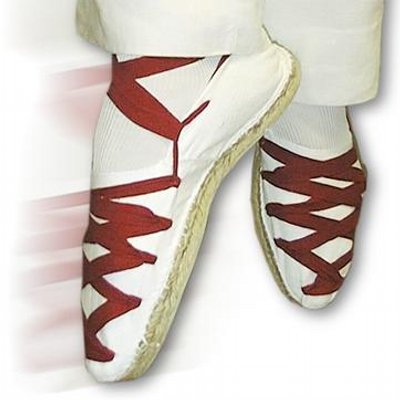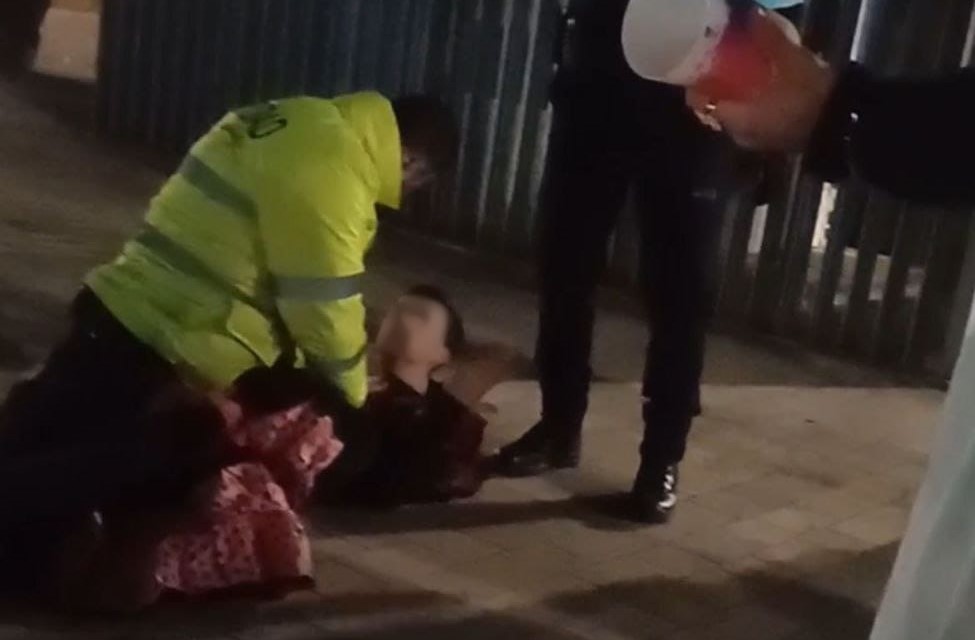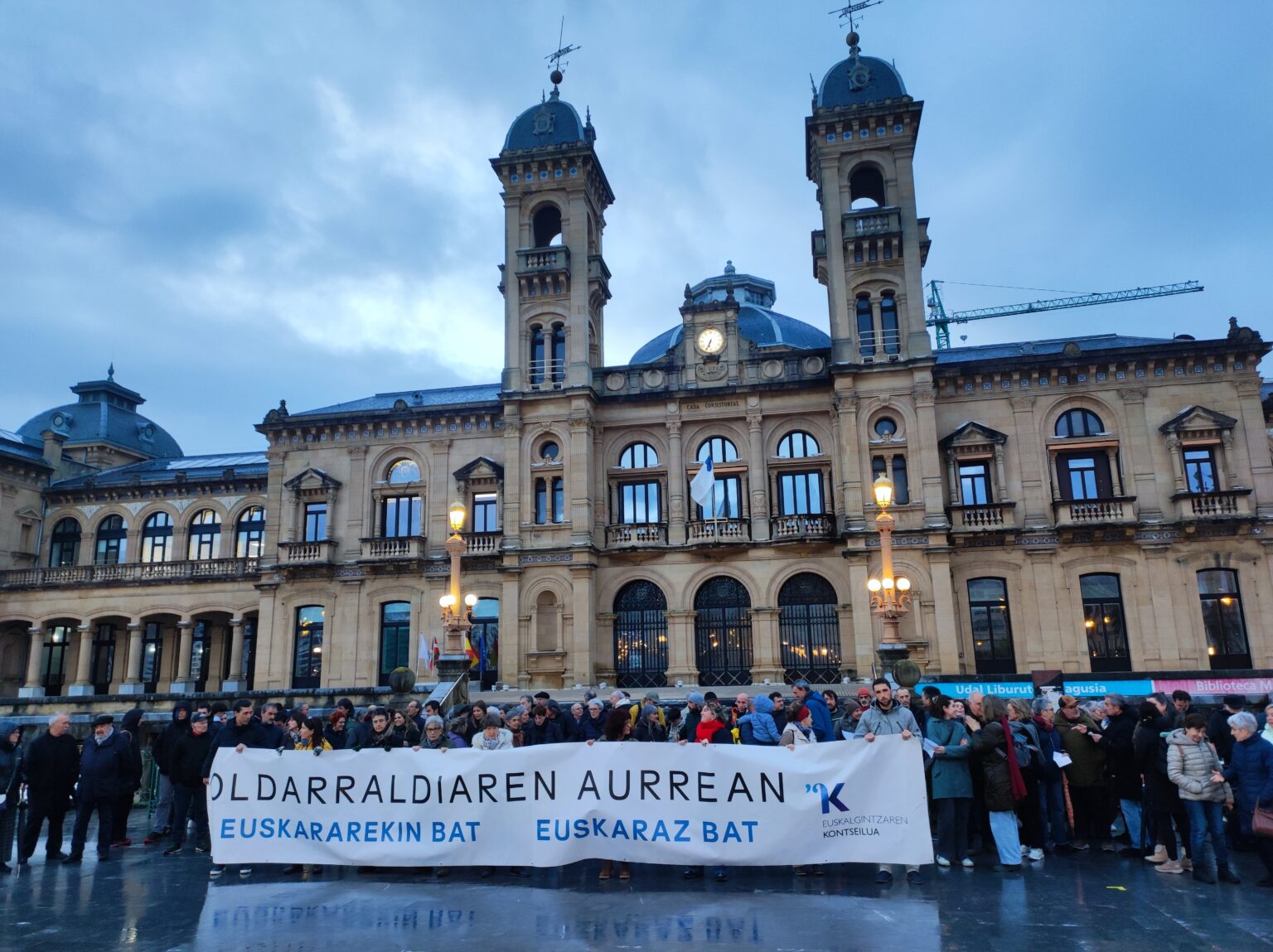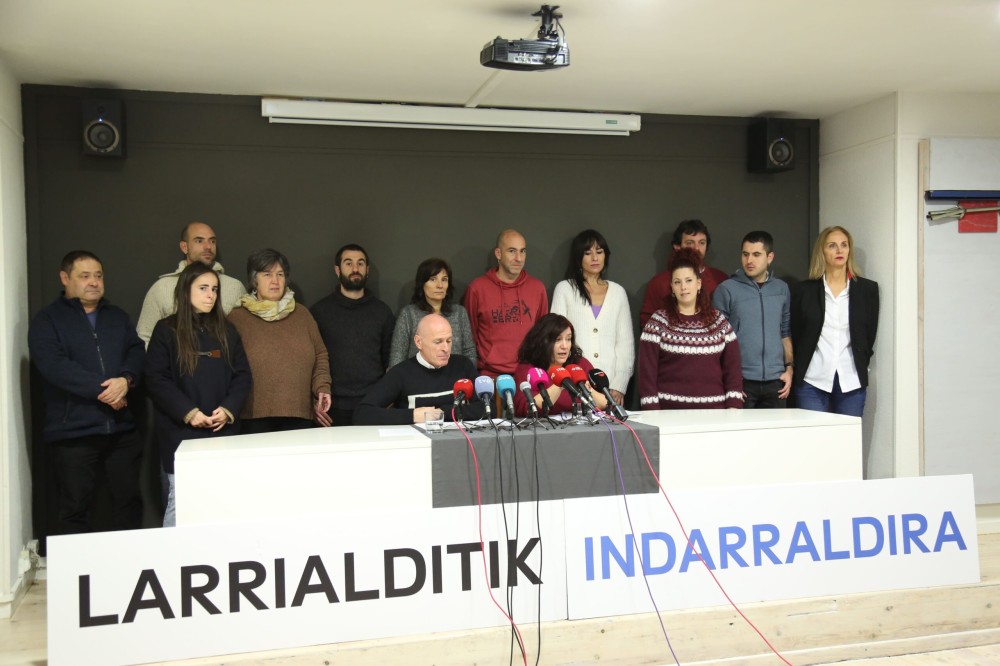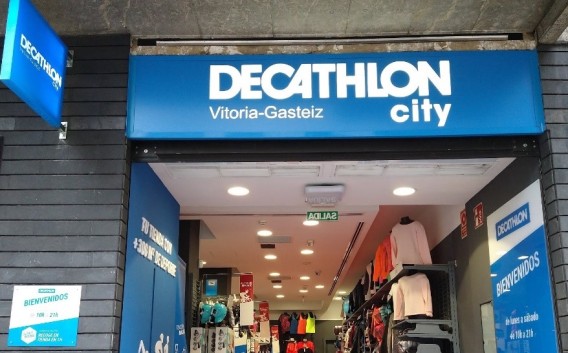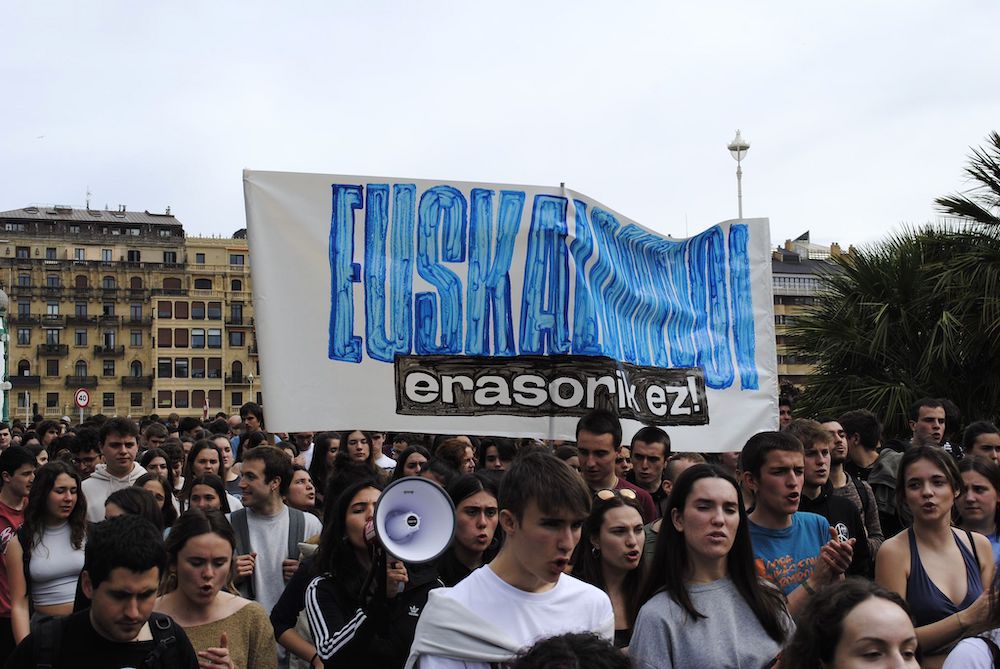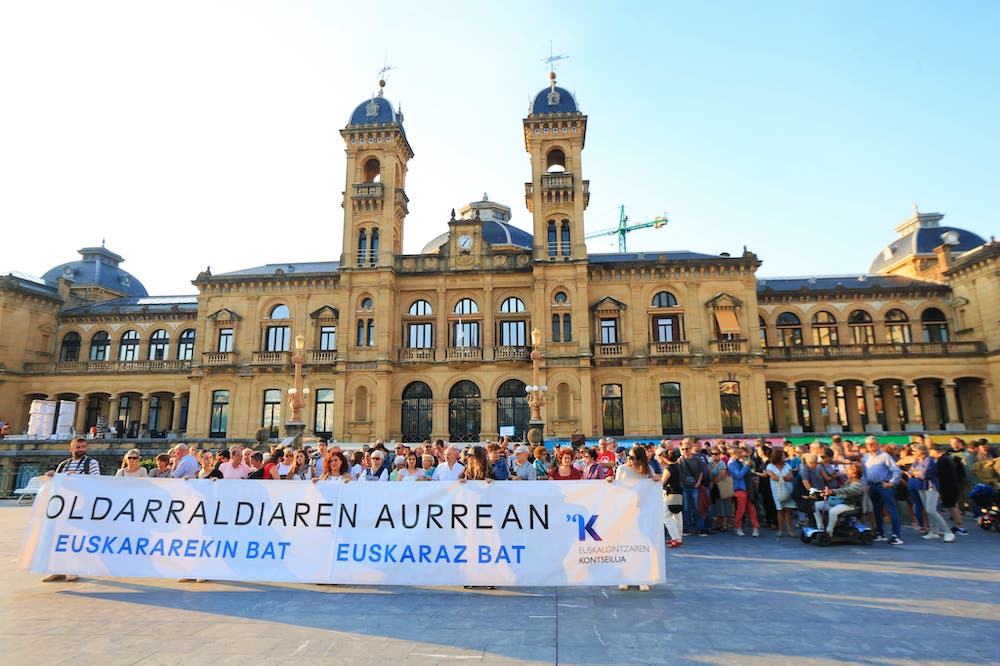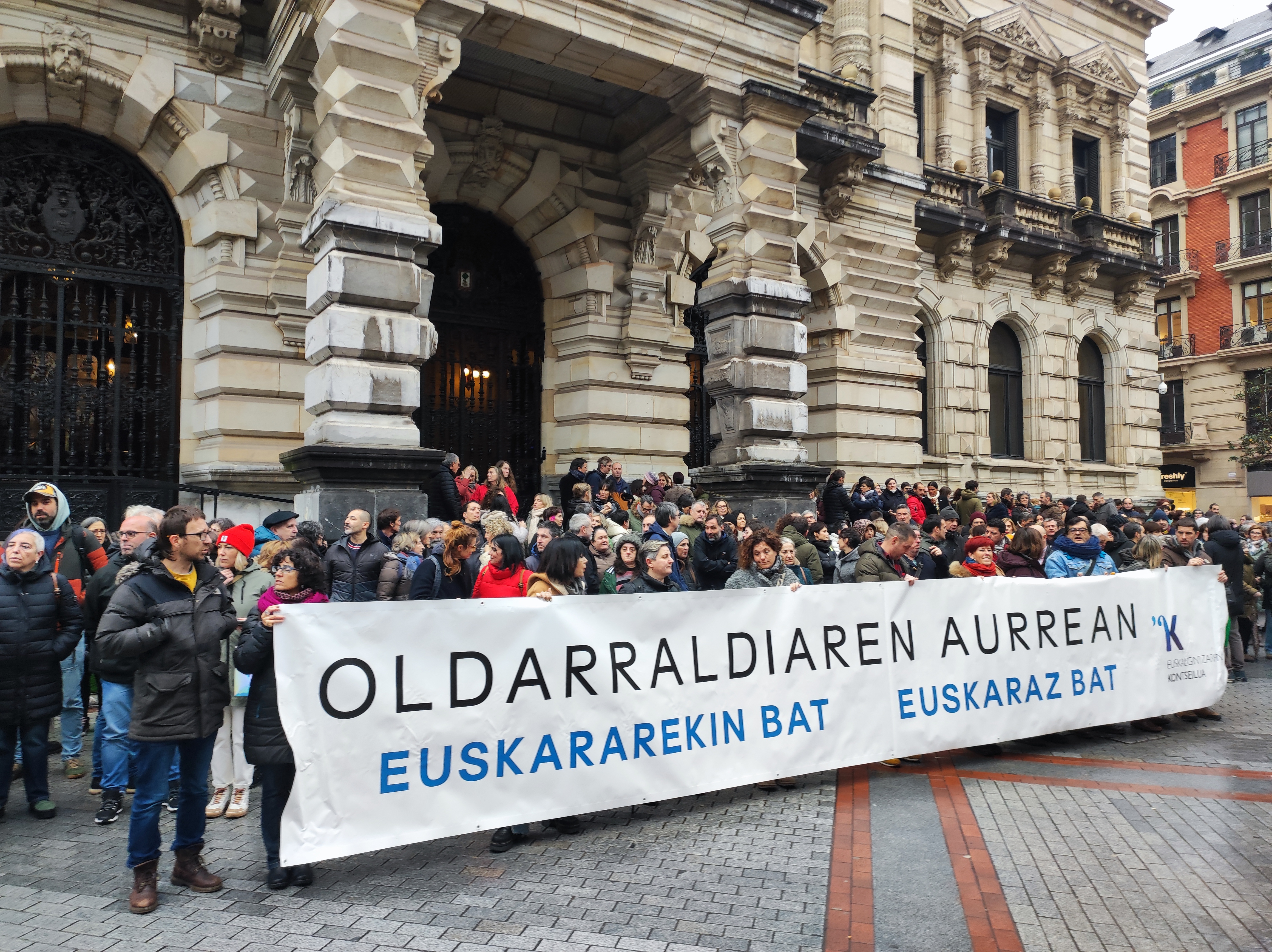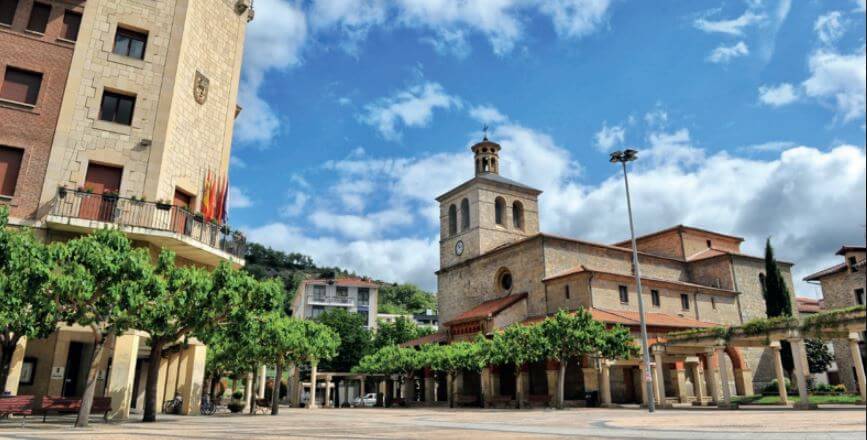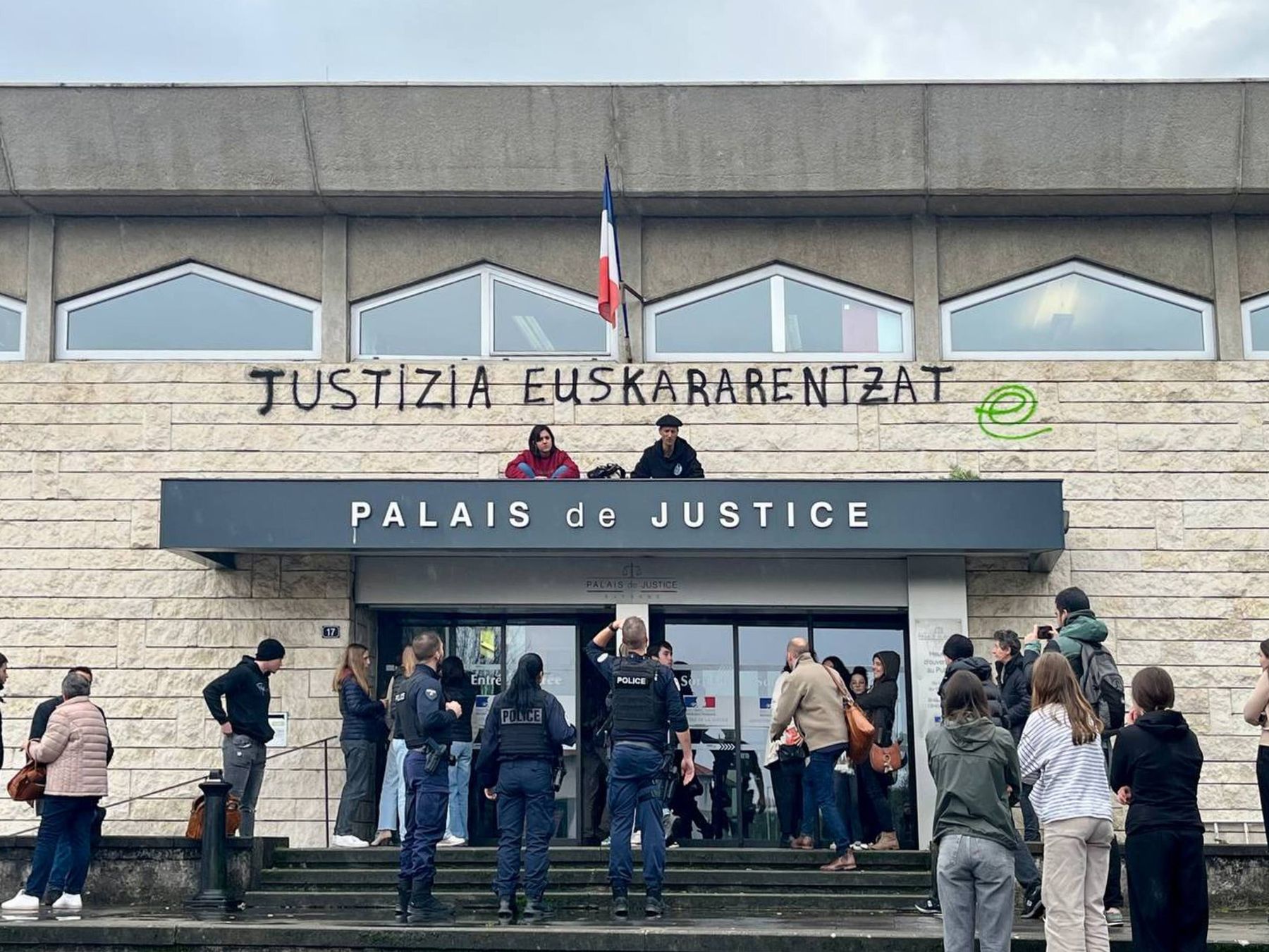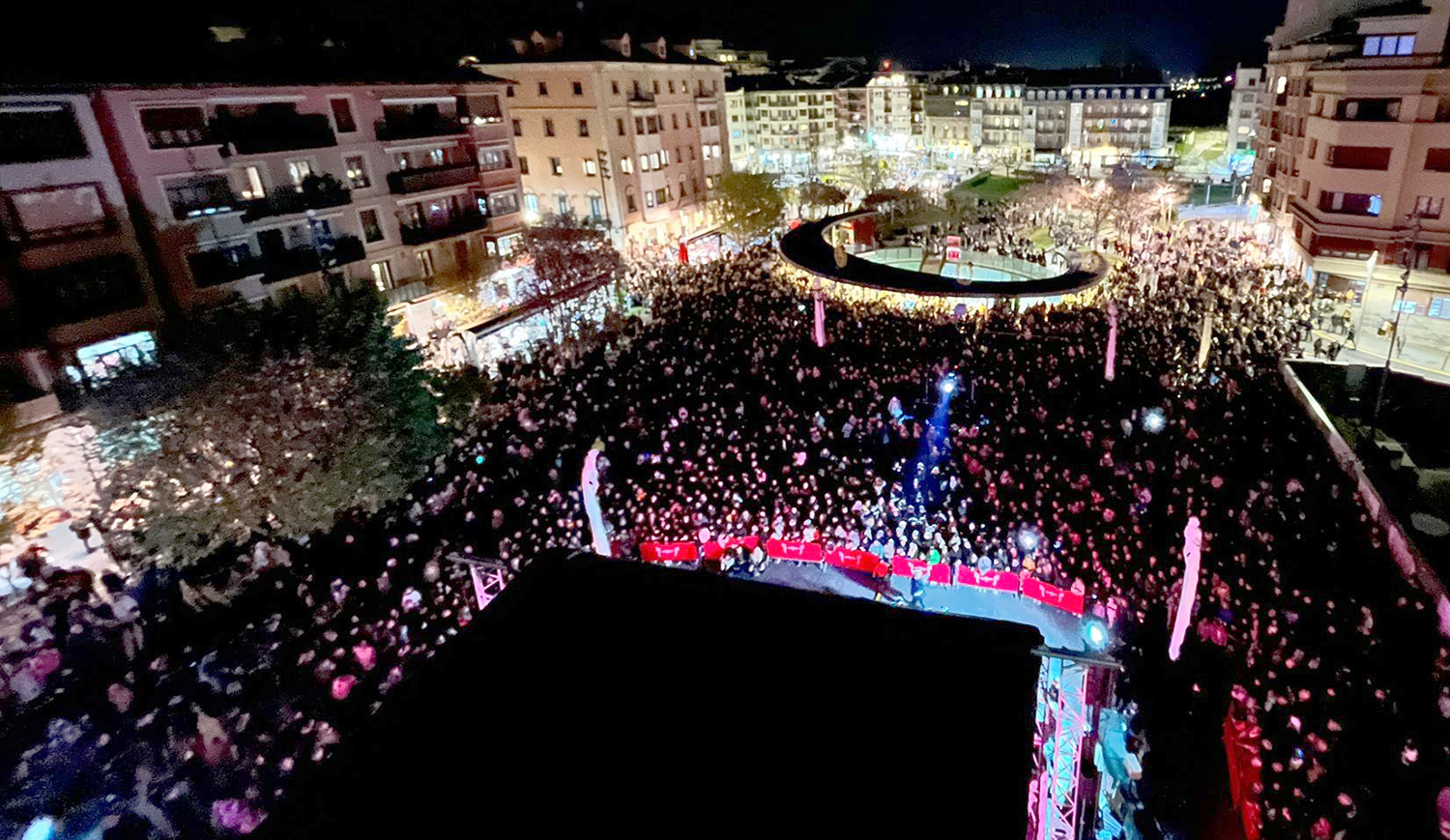Soka-dantza tutorial for demonstration against aggression
- On 4 November, a demonstration called by the Basque industry under the slogan Oldarraldia in Basque will be held in Bilbao from 17:00 am. It is expected to be a multitudinous manifestation and in the end, together with other interventions, all of us who manifest in it, we have been called to dance on a rope.

The Basque community represented by hand
Soka-dantza is one of the most genres bailados.Este dance performed on the rope is completed with hands and offers as simple as strong representation of teamwork. The awareness of this symbolism has made the ritual of esku-dantza used in special and decisive moments in the history of Basque society. An example of this are the sung soka-dantzak that has spread in recent years in eleven towns and corners of the Basque Country, within the day of the claim of 8 March.
The soka-dantza or irradaka is a collective ritual that is performed in a group, on the rope, in the soka-dantza, with the hands interlaced, and with that rope are represented and linked neighborhoods, towns, communities.
Thus, in the act after the manifestation of Bilbao, in hand, dance and singing, we have been called to represent and reclaim the Basque community, on 4 November.
Multiple strings
Under the staircase in front of the Bilbao City Hall they will create the first rope, the callers of the demonstration and local dancers. In addition, we will create several strings between the balance of the demonstration, one, two, three -- to the maximum. Members of other dance groups will invite those present to dance, but any group of friends will be able to create their own soka-dantza. To do this, the dantzaris of the dance group Duguna explained in this pair of videos the details of the soka-dantza:
For the time being, the dance groups Argia (Donostia), Haritz (Elgoibar), Convenes Kai (Deba), Beldur (Eibar), Kriskitin (Durango), Eusko Lorak (Sestao), Elai-Alai (Portugalete), Akelarre (Ruhendaia) and Duea will be. Arkaitz Miner, Lorea Intxaurrandieta, Mikel Urbeltz and Ander Blasco will play music to soka-dantzari and Ihitz Iriart will sing the verses that Subai Colina has prepared (in the melody of Xenpelarren Ia guriak egin du):
Melody: Almost soft
-1-
It's almost been white ...
But why quiet? (aa)
Meeting soka-dantza
and order each other:
I want to live in Basque! (aa)
-2-
Both in Spanish and in Spanish
as we are not in the Netherlands, (bis)
under the same conditions
until you start talking,
I want to live in Basque! (aa)
-3-
With those who come from far away
with the nearest, (bis)
those they have learned
You don't know.
I want to live in Basque! (aa)
-4-
Even if I like sexia,
basket, well educated… (bis)
I don't care what's special
if I'm not by nature almost
I want to live in Basque! (aa)
-5
Today I feel incapable.
tomorrow is the cause of a people. (aa)
Self-subsistence
if revolution is:
I want to live in Basque! (aa)
-6
Coming down as you fall
always and (bis)
not some
the ethics of others,
I want to live in Basque! (aa)
-7-
I started studying.
manifest living without it (bis)
but in Argomaniz
In Lantzen or Zalgize
I want to live in Basque! (aa)
Through this soka-dantza we will implement what Bernat Etxepare suggests in his poem Contrapas: Let the Basque put the world, the square and even the dance! !
If you want to participate in soka-dantzak you can write to dantzari@dantzan.com.
Euskal Herrian Euskarazen arabera, Tolosako tren geltokiko segurtasun agente batek eraso egin zion militante bati, agenteari euskaraz hitz egiteko eskatu ziolako. Tolosako alkateak "kezka" adierazi du eta azalpenak eskatuko dituela jakinarazi.
Euskalgintzaren Kontseiluak eta Bizkaiko Foru Aldundiko langileak elkarretaratzea egin dute langileen egonkortzearen eta euskalduntzearen alde.



